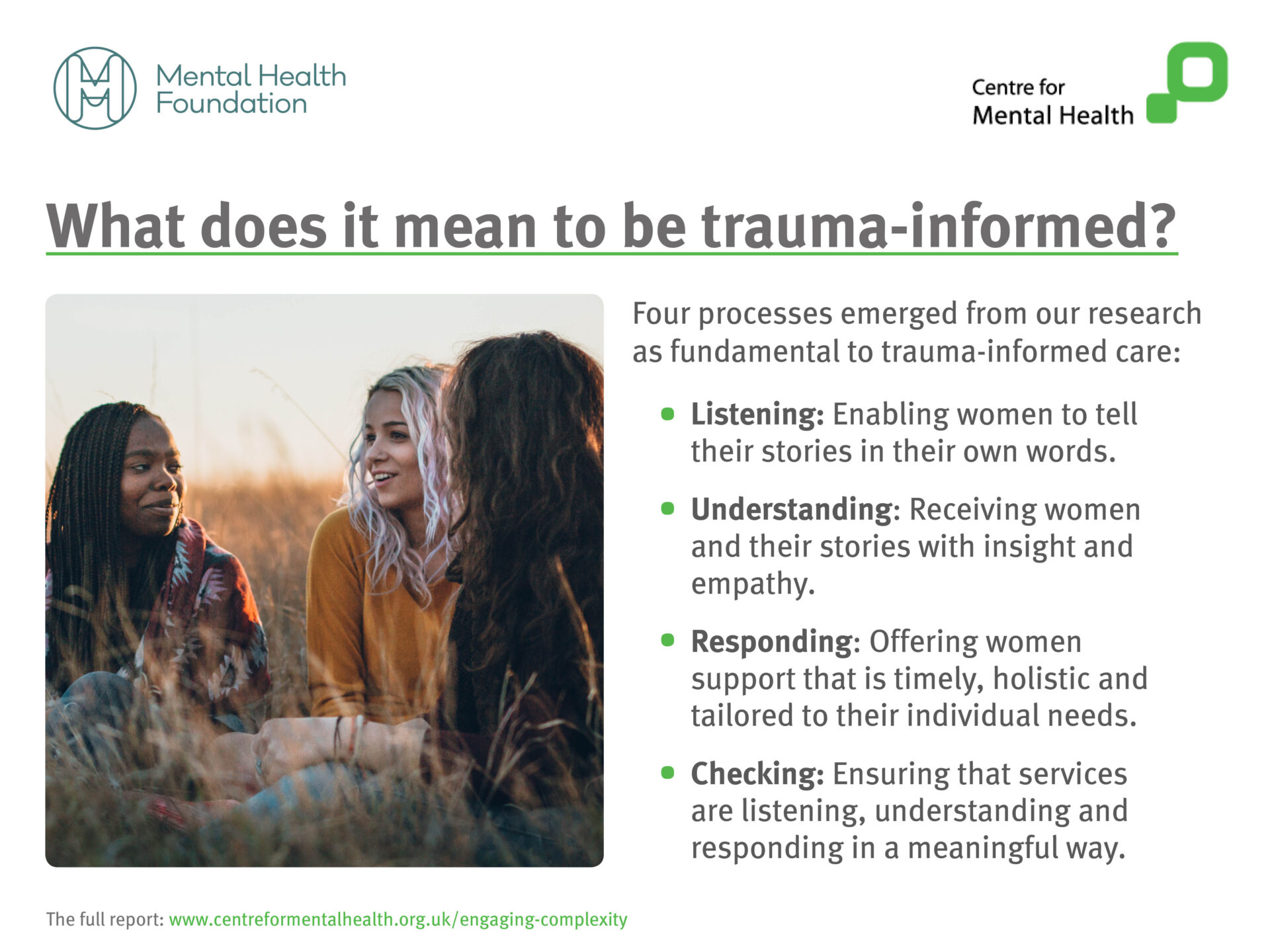Providing effective trauma-informed care for women
Jo Wilton and Alec Williams
In recent years, understanding of trauma has increased significantly. Alongside this has been a growing recognition of the role institutions can play in perpetuating trauma, inadvertently causing further harm to some of the most vulnerable people they work with. Understanding the impact of trauma on women is therefore vital for providing effective services.
Engaging with complexity offers public services a brief guide to the principles of trauma informed care and how to put it into practice. Looking at the concept of trauma (including causes, impact and prevalence), the report explores the model of trauma-informed care, and UK organisations currently employing such approaches.
The resource was produced by Centre for Mental Health and the Mental Health Foundation in collaboration with the Association of Mental Health Providers, the National LGB&T Partnership and the Race Equality Foundation. It was commissioned by the VCSE Health and Wellbeing Alliance, a partnership between the Department of Health and Social Care, NHS England and Public Health England. Engaging with complexity follows the 2018 Women’s Mental Health Taskforce report, whose recommendations included the wider use of trauma informed care.






